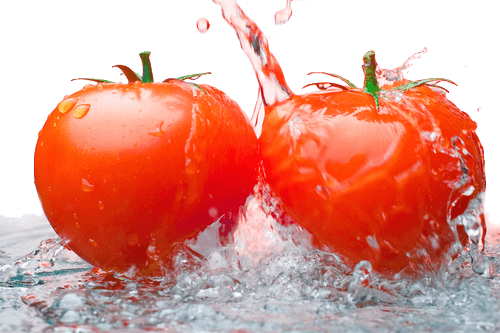The D.H.C. Lifestyle Program
Lifestyle Designed To Help Normalise Blood Sugar Levels

Cleaning Non-Organic Produce from Pesticides and All Produce from Bacteria
We are all aware that today our mass grown food is sprayed with pesticides and often covered with waxes. It is obviously best to purchase organic produce. This sometimes is not possible because of a lack of organic produce or because it may be price prohibitive.
If using non-organic produce it is important to wash the produce. Keep in mind that produce that has been grown and sprayed often will have chemicals contained inside the plant. Regardless of this fact, washing removes the chemical residue that is often found on the outside of the produce.
EWG has produced a shopper’s guide to pesticides in food.
The guide can be read by following this link.
All produce including organic should also be washed to eliminate bacteria.
A study published in 2003 in the “Journal of Food Protection” found that washing apples with a vinegar and water solution reduced salmonella on the outer skin significantly more than washing with water alone.
There are commercial sprays available for washing, it is however quite easy to make your own spray at home and will cost a fraction of what you would pay for commercial washes.
Think about the following points:
• Bacteria and fungus occur naturally on most crops. Even if there is no visible soil clinging to your non-organic or organic produce, bacteria can be present.
• Many hands touch the food before it gets to your mouth, plus bacteria from soil and dirt can accumulate during the shipping process. These are present on your produce when you purchase it.
• Agriculture pesticides are not removable with water alone.
Even if you plan to peel or scrape the produce it is recommended to clean the produce first. If you have, for example, a beautiful ripe melon and you slice through it without washing the outside the knife can move potentially harmful pathogens from the outside through to the centre.
Some people wash produce with dish detergent. Although this removes much of the pesticide, the soap residue that is left behind can be detrimental to your system. It has been known to cause gastrointestinal upset. Cleaning with anything that is not meant to be consumed should be avoided.
Some delicate produce, such as apricots or berries, should not be soaked in water but can be sprayed with one of the homemade cleansing blends below and then placed in a colander, then using a gentle flow of water to rinse the fragile produce. To avoid rapid spoilage of produce ensure you wait to wash and rinse just prior to use.
The recipes below will allow you to mix your own natural washes. You will notice a better flavor. Washing also reduces risks of consuming contaminants and making your own wash saves you money.
Produce Wash 1:
- 20 drops grapefruit seed extract, available at health food stores
- 1 Tablespoon baking soda
- 1 cup white vinegar
- 1 cup water
- New spray bottle
Produce Wash 2:
- 1 Tablespoon lemon juice
- 1 Tablespoon white vinegar
- 1 cup water
- New spray bottle
The baking soda and vinegar will foam when mixed together. Make sure you pour slowly.
How to use:
Spray produce. Let sit 5-10 minutes and rinse thoroughly to wash away residue.





